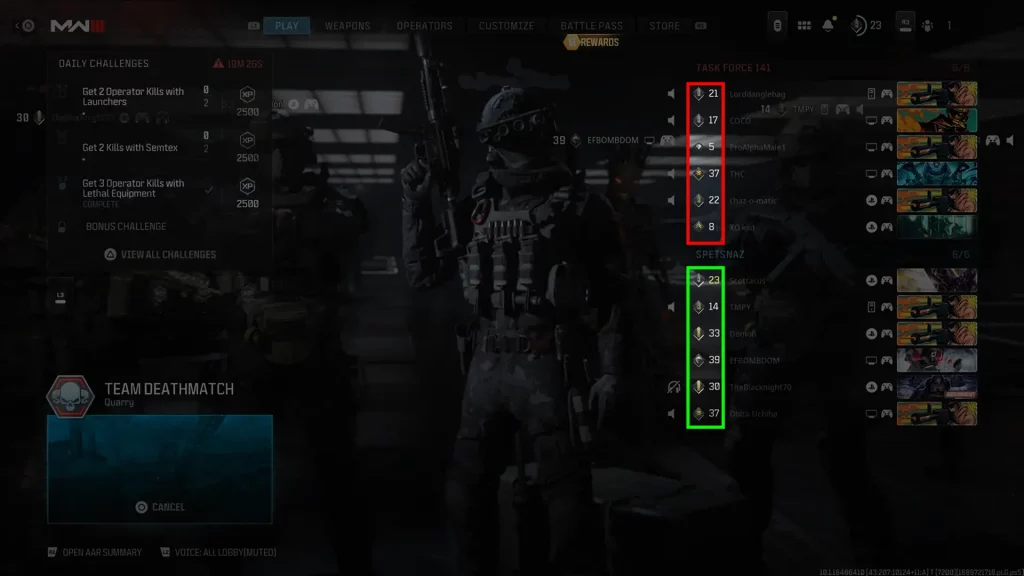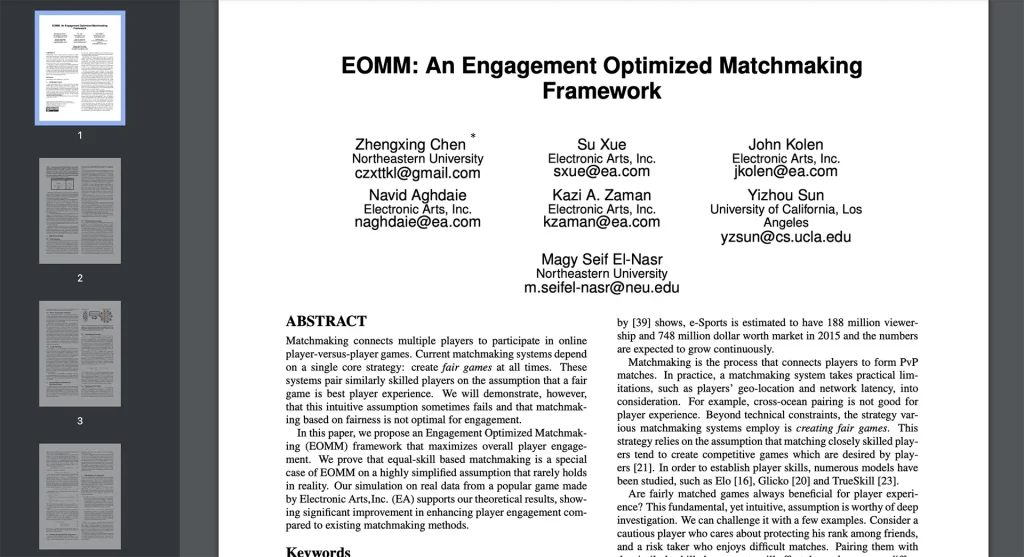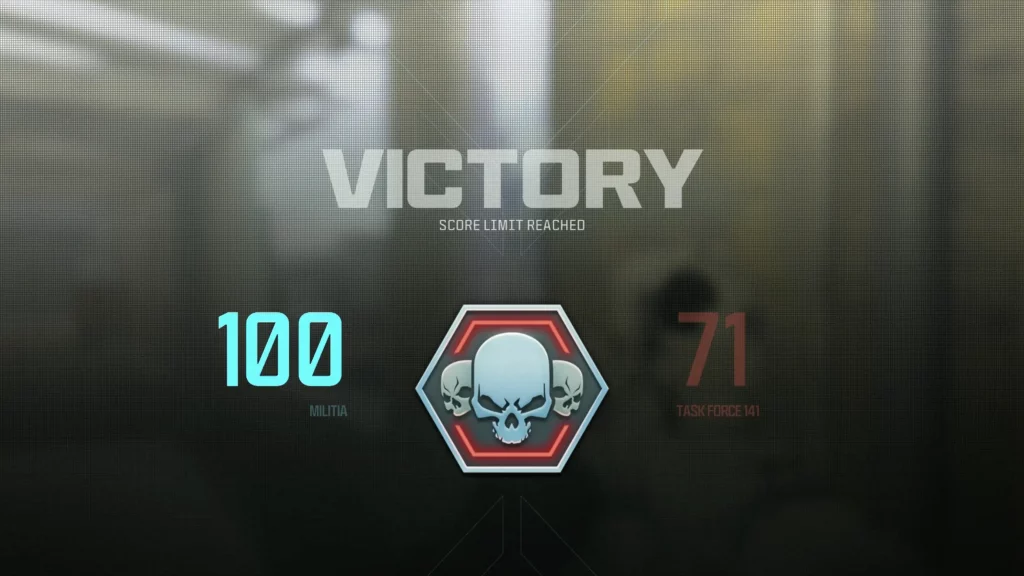What Is EOMM? And Why It’s Ruining Your Online Gaming
Video transcript:
Here’s the scene: I’m doing well in Call of Duty, calling in airstrikes, racking up the multi kills, then bam! In the next match I’m playing against sweats and trying to muster the focus and intensity level needed just to compete. This is due to modern Skill Based Matchmaking and we can all agree this sucks, right? Well as it turns out, probably not. As in, Skill Based Matchmaking probably isn’t to blame, and neither are all those sweaty players handing me my ass in that last match.
There’s something else at work here, but first, let’s get some context and talk about what players want and expect out of matchmaking: let’s talk about the good ol’ days.
Take Me Back
It feels like online gaming changed slowly over time, but there was a big change around 2019. In games like Call of Duty Modern Warfare, it felt like players were consistently being punished for doing too well, and getting thrust into matches where they’re suddenly in over their head, or at least have to really struggle just to stay competitive. Ah, the dreaded Skill Based Matchmaking, or SBMM.
But it wasn’t always like that. In fact, SBMM has been in online gaming for at least 19 years. I remember Halo 2 displaying a player’s skill rating after each match and using this rating to balance out teams.
But SBMM seemed to hit its stride in the late 2000s and early 2010s with Call of Duty. Here’s how I remember it: I bounce around from lobby to lobby until I find one that fits. The match is challenging and fun, maybe I have a mini-rivalry going with someone, but lobbies were persistent back then so a few people might drop or join here and there, but for the most part you could play with the same people several matches in a row. Sometimes this would last a few rounds, sometimes several hours. Many temporary bonds were formed, but there were also a lot of lasting friendships made this way. For many, this was Call of Duty’s heyday, and I don’t think that’s unrelated.
But let’s be clear: the idea that doing well in a few matches will get you matched up against better players the next time you join a server is not new. That’s how these games have worked for almost 20 years, as far as I can tell.
But over time (and especially around 2019) players noticed the SBMM tightening. Lobbies were disbanded after every match, supposedly so everyone’s ranks could be adjusted and re-balanced. And because I’m good at Call of Duty, SBMM was throwing me into sweatfests and ruining my fun.
Except that’s not true at all, I mean I’m 49, my reflexes are shot, and these days I’m probably an average player at best. So why am I playing lifers with every camo unlocked?
SBMM, In Theory
If SBMM had tightened up the way we think of it, shouldn’t we all be playing people that are roughly the same skill? Isn’t that the whole point? Most of us play enough games against enough opponents that our skill rating should be fairly accurate, especially after a game has been around for a few weeks or months.
But if we’re all playing against similar players, wouldn’t everyone be getting about the same number of kills and deaths, for example? Shouldn’t each match be fairly competitive and come down to the wire pretty regularly?
But that’s not the experience at all. Matches appear imbalanced before they ever begin, and the final scores are regularly lopsided.

Well, there’s a very good reason why you pop off in one match and get ripped in the next, and you shouldn’t blame SBMM. Blame Las Vegas.
Enter EOMM
Casino games have two diametrically opposed goals: be fun and engaging for the player, but also extract as much money as possible. This is a tricky balancing act, so these games boil down to one key metric: how many times can the player lose before they’ll stop playing?
A paper by UCLA studied this idea in relation to online gaming, and based on their findings made a bold claim: that simply creating fair matches wasn’t enough to keep players engaged. That, in fact, using a new method of Engagement Optimized Matchmaking, players would stick around longer.
They worked with EA on the study and although they didn’t specify which game, they did mention running their simulation with “real data from a popular game”. So this isn’t just some obscure paper that the industry isn’t aware of.
The paper was published in 2017, during what would’ve ben the development cycle for games released in 2019.
This study found that players were more likely to quit playing a game for good if they lost too many times in a row. I mean, yeah I’d say that checks out. But the kicker here is that they’d see a similar rate of players dropping if they won too many times in a row.

This paper is linked here if you’re interested, it’s a pretty interesting read. You know what else is below? The like and subscribe buttons, and I’m not saying clicking them will change your life, but I’m not saying they it won’t…
The whole gist of the study was to point out that the best way to keep players playing was to throw them a bone once in a while and make sure they were on the good team with some good teammates. Let ‘em go ham and feel like they’re eating the other team up.
But the rest of the time? Well, somebody has to be eaten…
Of Lions and Lambs
In any given match, there will be a chosen few who’s skill rating is higher than everyone else. I call these the Lions. Everyone else is there to feed them, and I call these the Lambs. There seems to be a range of skills amongst the lambs, too, with a few being way overmatched and everyone else somewhere in the between. Those in-betweeners are likely to have some success, but also some frustrations, but nothing too extreme either way.

Sometimes you’re the lion, sometimes the lamb, but everyone has to be the lamb more often in order to make being the lion feel special. It’s just simple math.
An that’s the key metric to EOMM: how often can you lose before you’ll quit? How many matches of being the lamb can they force on you before letting you be the lion? Because the lion matches keep you going, but there can only be a few in each match or else the whole thing falls apart. And the longer you play, the more likely you are to buy the season passes and skins and weapons blueprints—so we really are back to “be fun and engaging, but also extract as much money as possible”.
It Makes Sense Now
Honestly, this explains everything. I don’t have any inside knowledge and I’m not aware of anyone coming out and saying this is how matchmaking works now, but it seems incredibly obvious. This is why lobbies are lopsided. This is why matches aren’t as consistently competitive as they should be. This is why I can go 24-4 in a match right after being a bullet piñata.

And it changes my whole mindset while I’m playing. If I go off, then eh, I can assume I’m punching down. And now if I’m in a match and everyone seems to be way better than me, I know the lions in the match were due for a pick-me-up, and I was the closest lamb. Those lions are now more likely to stick around and spend money, and I just have to suffer being a lamb until it’s my turn. But I’m still not spending money in the shop, and I think we’d be better off if we’d all stop spending money in the shop. But that’s probably a topic for a different video.
I don’t know, I genuinely want to be good at Call of Duty. But how can I know where I actually stand? It reminds me of racing games that are programmed so the AI drivers will always speed up or slow down for you so the race is competitive no matter how well or how badly you drive. But under this model, the AI would beat you a bunch and then occasionally allow you to win. Where’s the fun in that? How can you know if you’re getting better or getting worse at a game?
So this all feels weird to me, and super manipulative. But it does raise a lot of questions: if players play longer under this system, doesn’t that mean they’re enjoying it more? Are players actually enjoying it more, or are we just being emotionally manipulated more effectively? Does a gambling addict enjoy a slot machine more than a tourist?
Either way, it’s time to let Skill Based Matchmaking off the hook.

